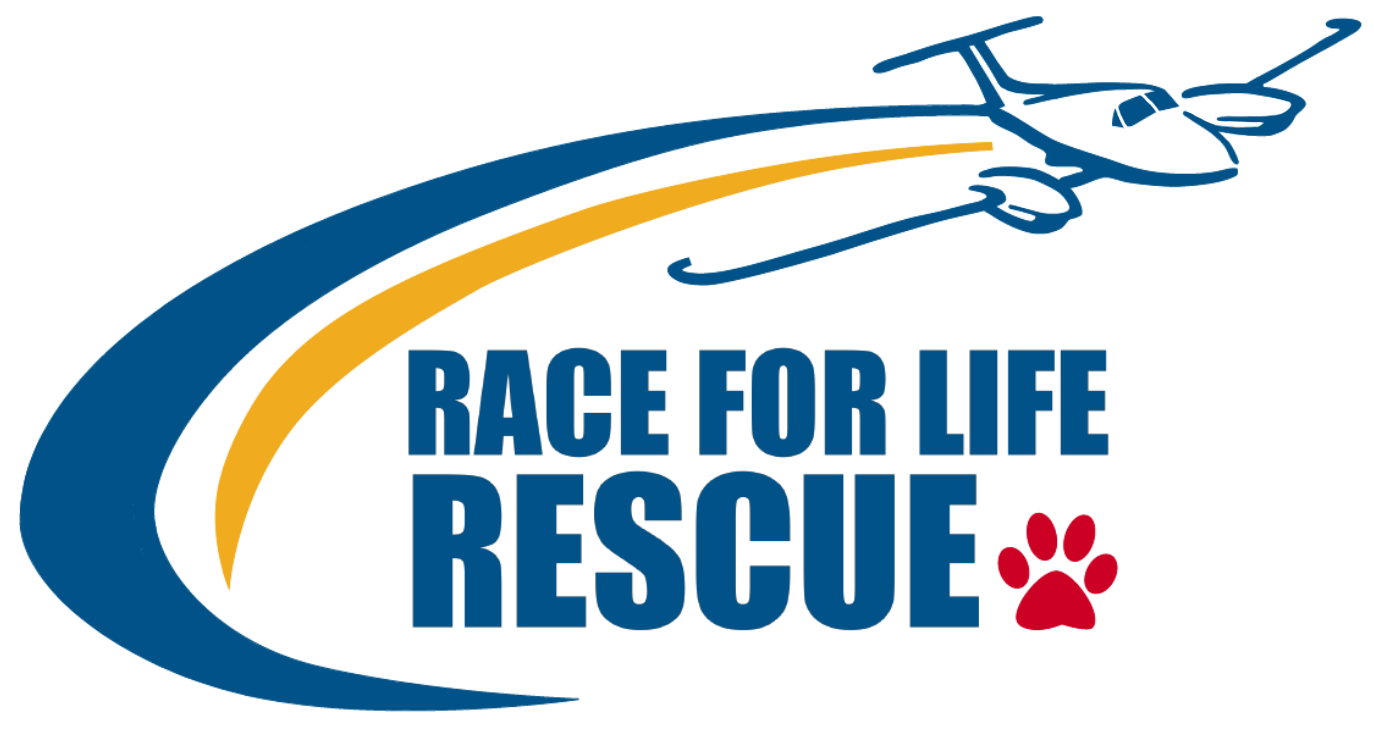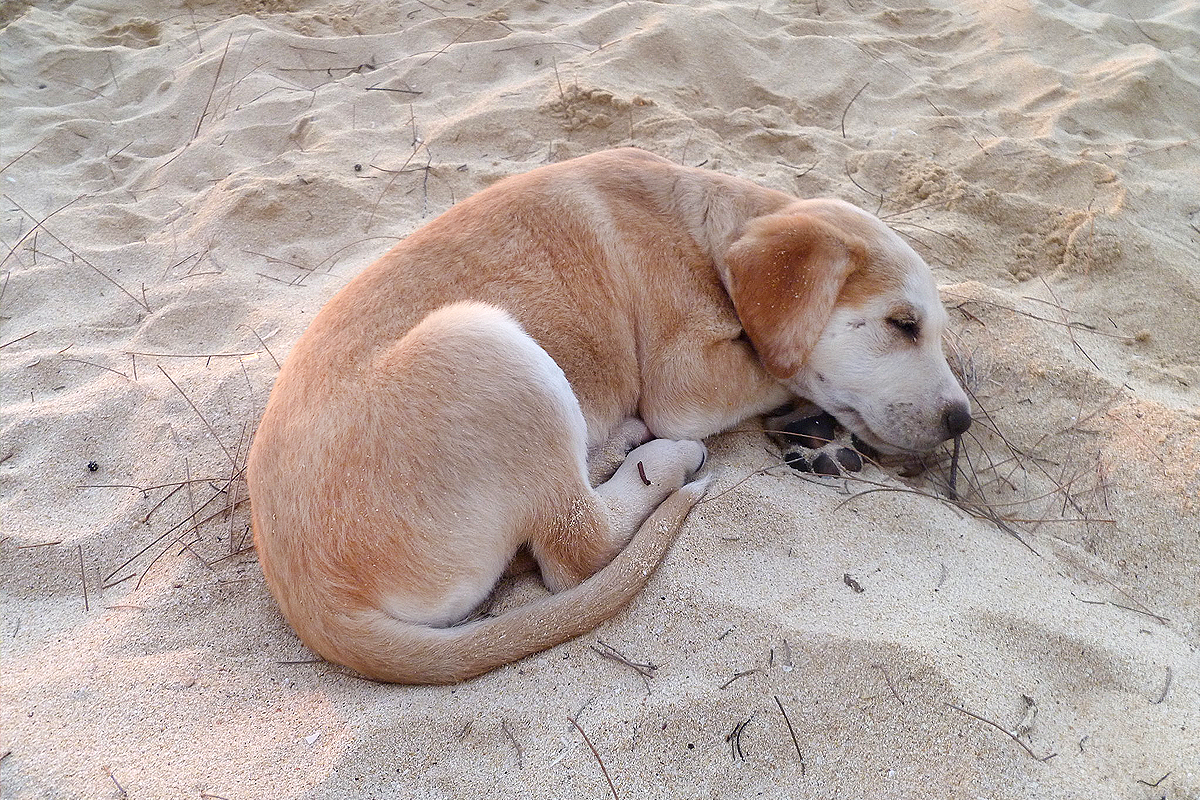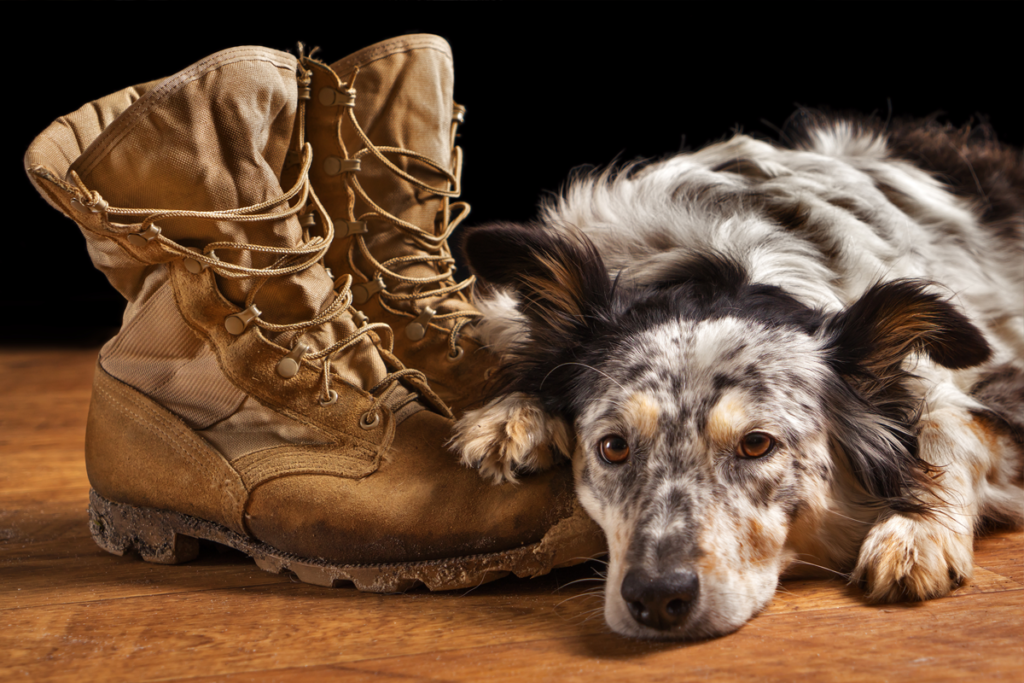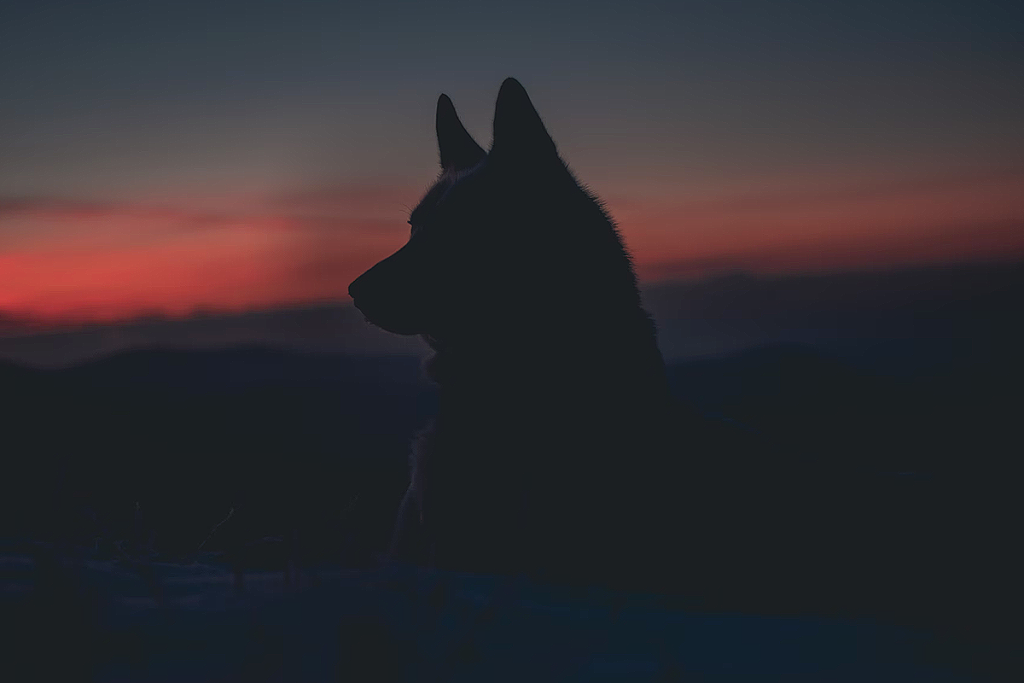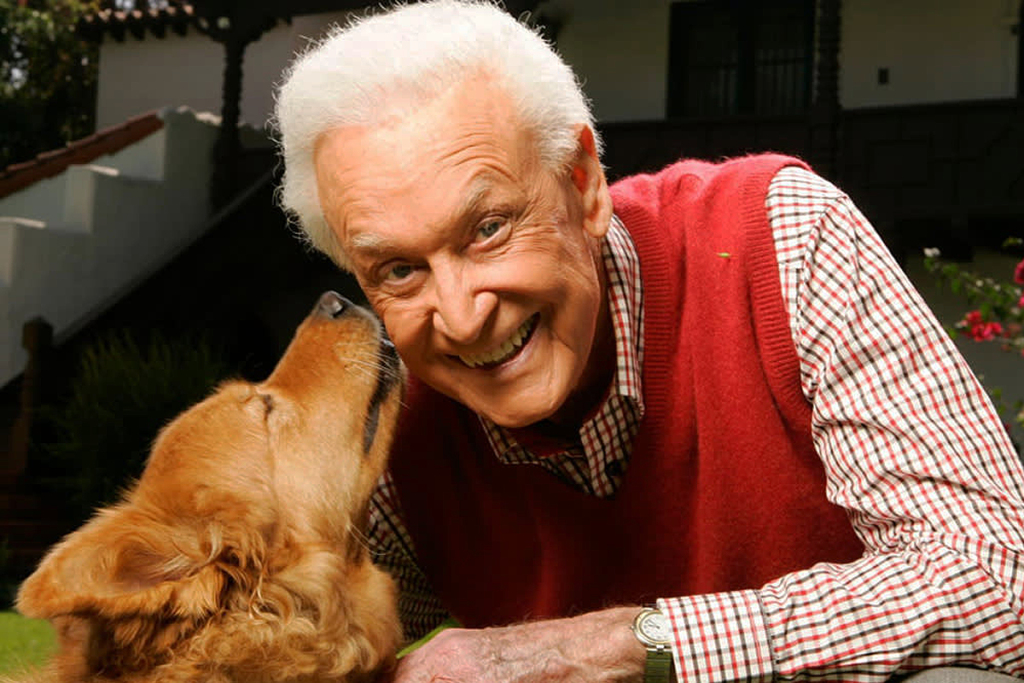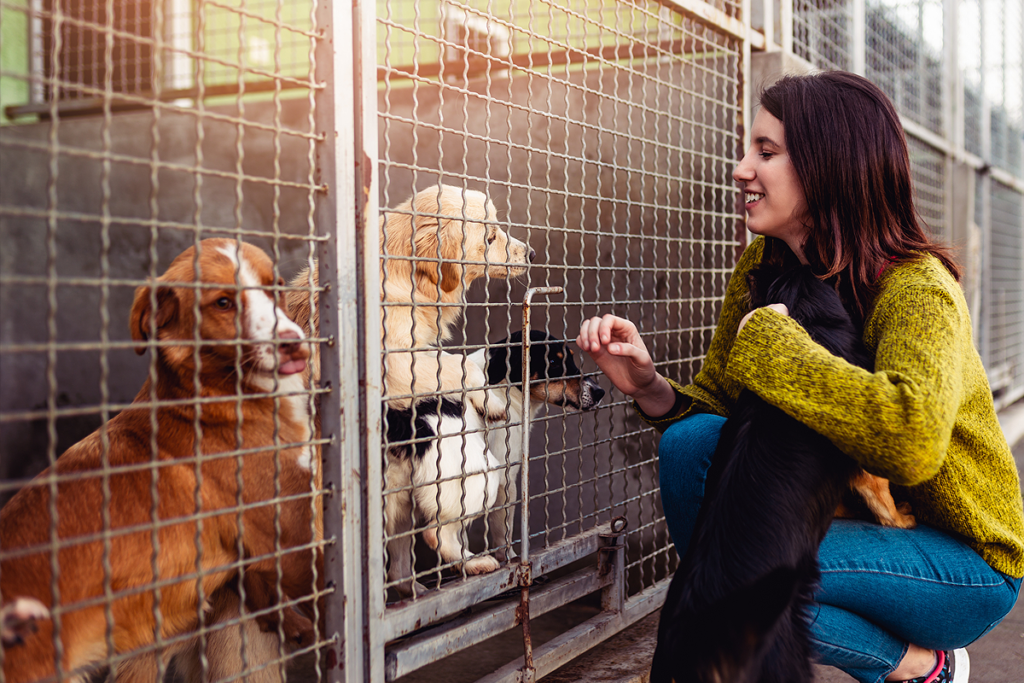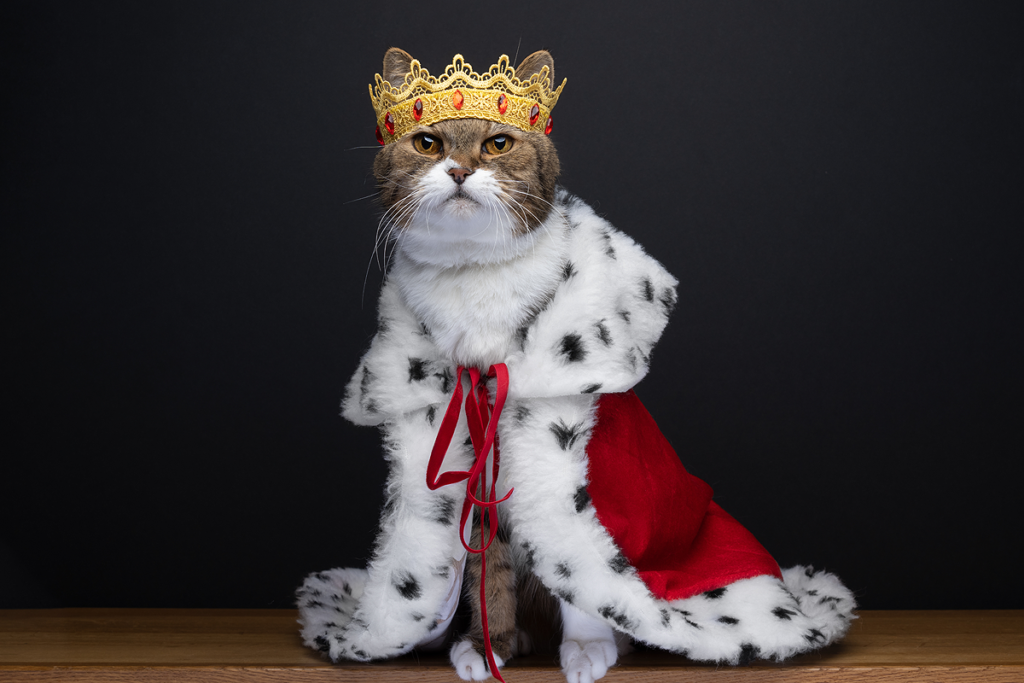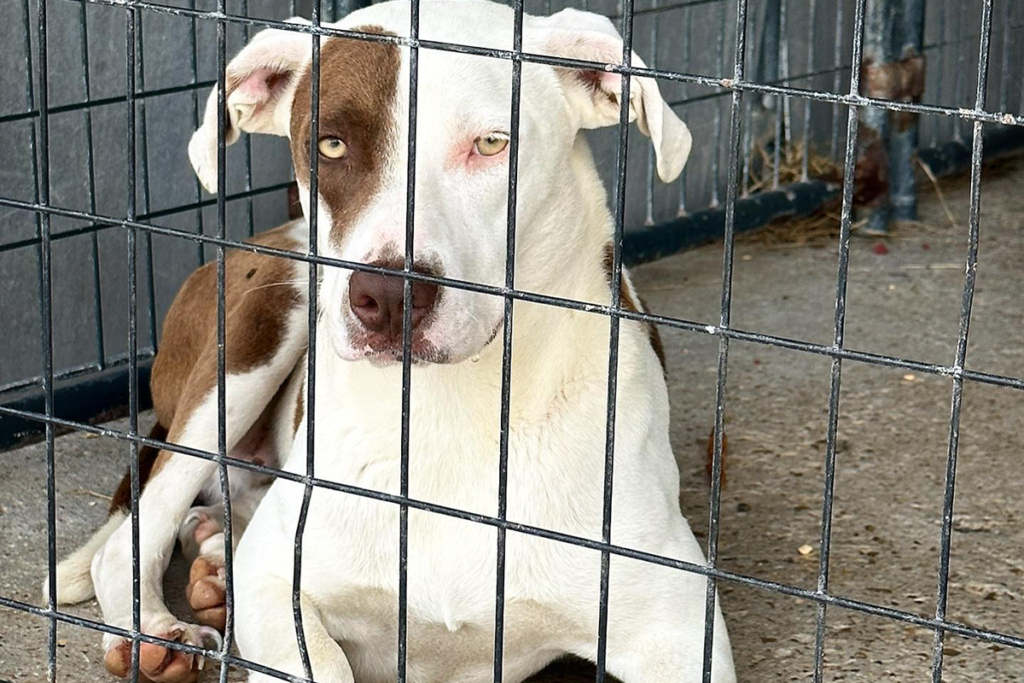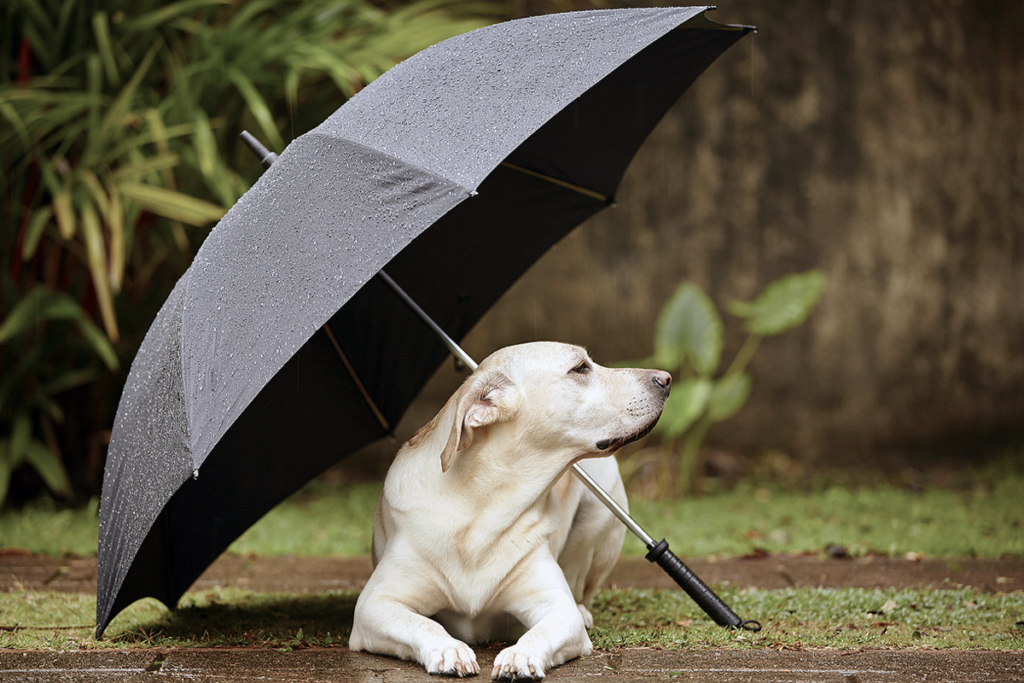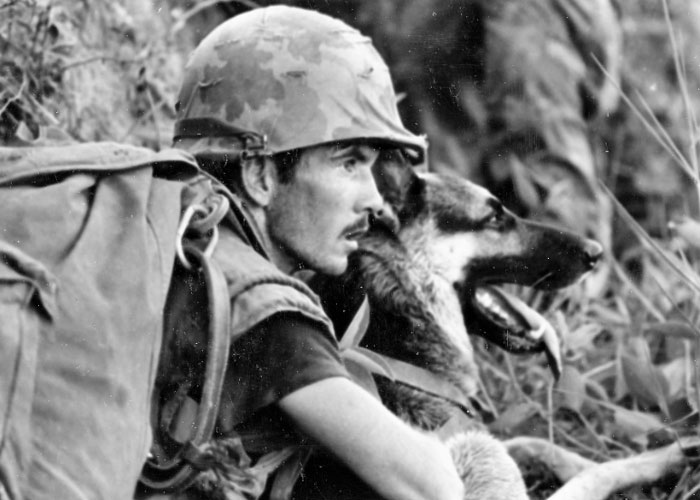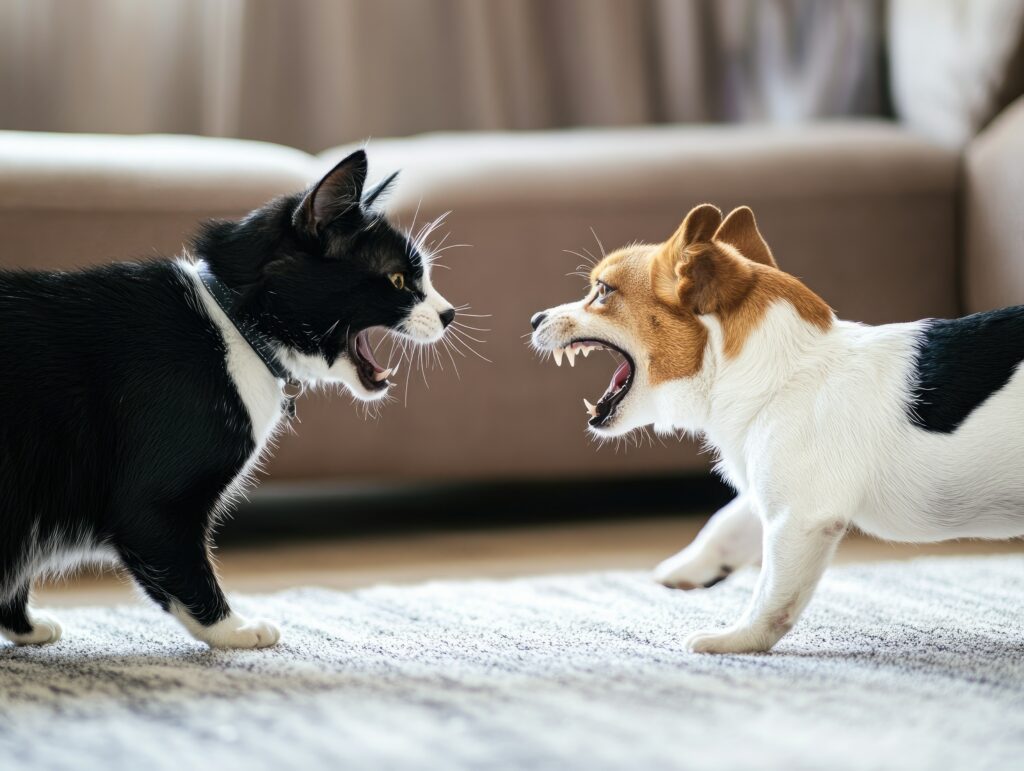When we think of white sand beaches, crystal blue water and cotton candy sunsets, a picture of paradise appears in our minds. Just envisioning ourselves in places like this has gotten us through countless Zoom meetings and the last minutes of grueling workouts. But island life isn’t always the carefree, easy life we often imagine. For the stray dogs of the Bahamas, each day is a fight to survive among the 20,000 homeless dogs that struggle to share the sparse resources available to them. Many are emaciated, dehydrated, abused, and suffering from the effects of heartworm and other easily preventable illnesses.
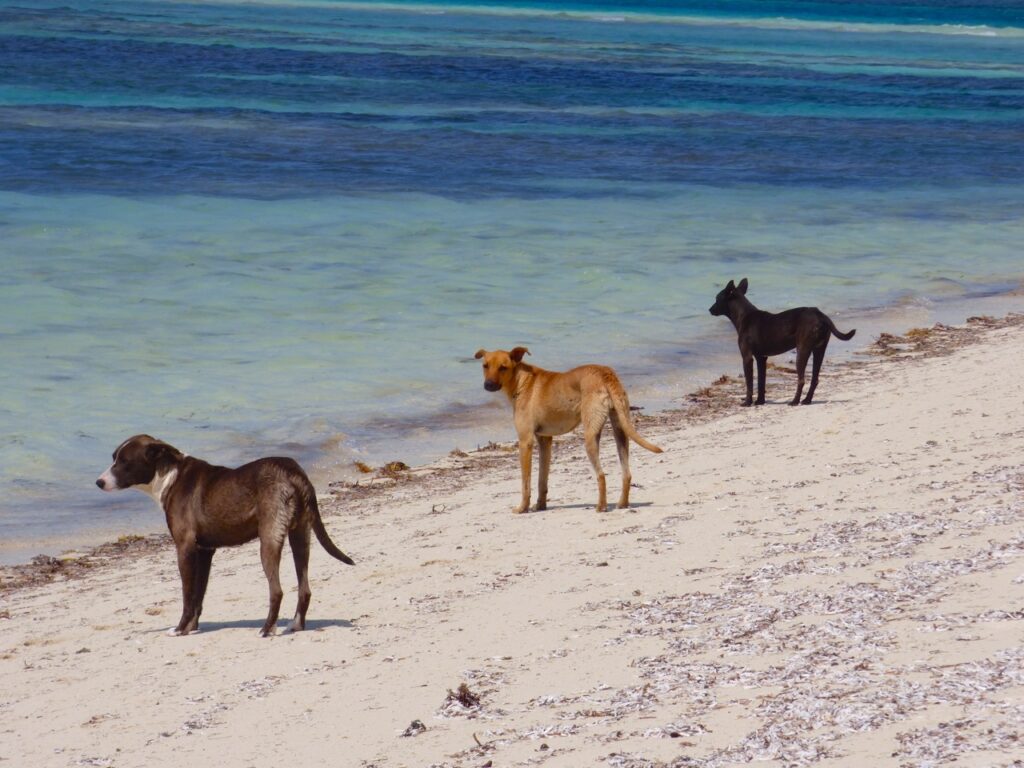
The street dogs of the Bahamas, known as “Potcakes”, are recognized by their pointed, cocked ears, a long face, and smooth coat. I would be remiss not to mention their eyes, locals and tourists alike will tell you the emotion and intelligence in them is like seeing right into their heart. And how did they get this name? After cooking a traditional meal of seasoned rice and pigeon peas, Bahamians would place their pots with overcooked remnants caked in the bottom outside for stray dogs. Given the amount of Potcakes that find themselves constantly competing for these meager scraps of food, many perish within a year and those who are injured or afflicted with illness last only a few days or weeks. It is truly a land where only the strong survive. Over the centuries, only the hardiest and most adaptable of the Potcakes that have reproduced and created one of the most resilient dog breeds on Earth. With a lineage that dates back 1,500 years, when the first dogs were introduced to the islands from South America, and then Spain, and finally the United States, such an amalgamation of essential and highly evolved traits, created a breed that is fiercely intelligent, resourceful, strong, brave, and most of all…determined.
Despite the challenging conditions Potcakes face, their numbers continue to increase at unsustainable rates on every island. A further contributing factor is the lack of veterinarians on the islands, making medical care extremely limited. More and more stray dogs roam neighborhoods seeking food, water, and shelter. Their weakened states make them more susceptible to painful diseases, and many are purposefully hit by cars, have rocks thrown at them, tied up with wire, or poisoned by people who find them a nuisance. Historically, their presence is said to be revered by Bahamians, as they are a dog of the people and a product of the islands’ ability to endure, but in an area where blended cultures abound, definitions of proper care, responsible ownership, and what constitutes cruelty tend to blur.
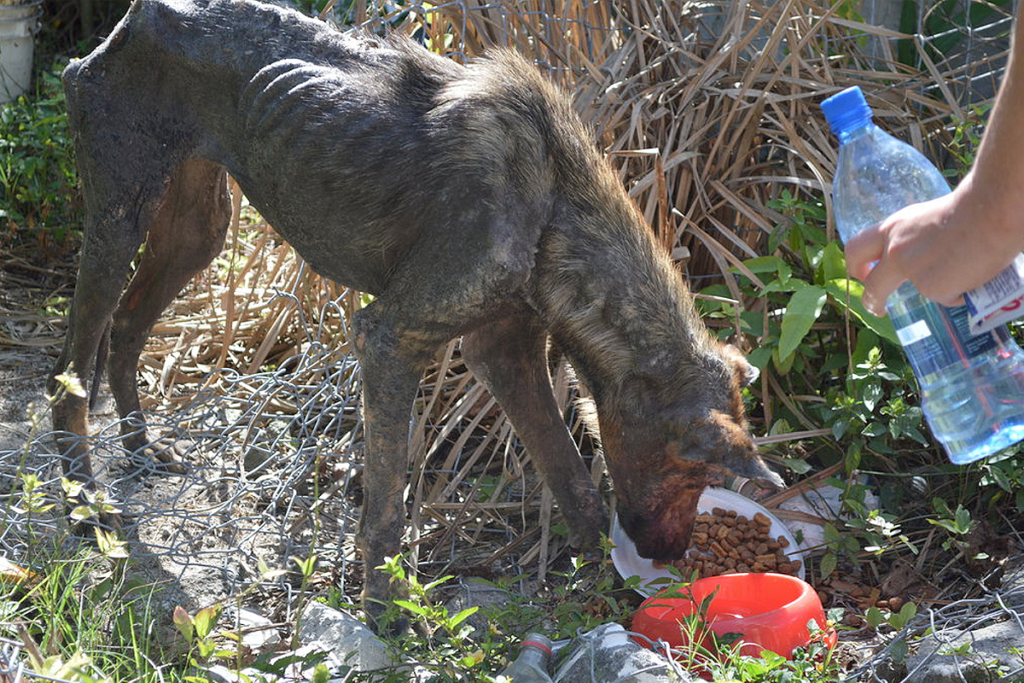
Limited employment options, a lack of resources, and an unpredictable environment contribute to the type of everyday hardships that foster desperation and acts of aggression. Studies have proven that there is a direct correlation between domestic violence and animal abuse, and this situation is further compounded by the government’s ineffectual laws regarding animal welfare. While it is illegal to mistreat or abuse animals in any way, including not providing adequate food, water, shelter and medical care, the fines are small and to date have never been enforced. Without strict spay and neuter laws, the Potcake population continues to grow exponentially.
One unaltered female dog and her subsequent offspring can produce 67,000 puppies in only 6 years
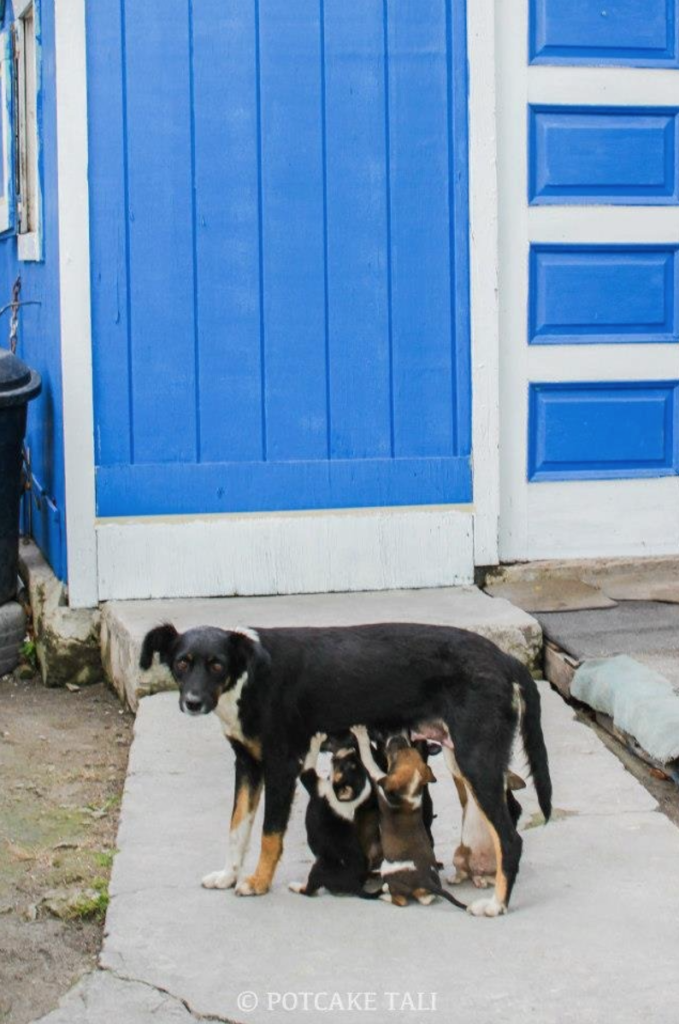
Thankfully, two predominant animal rescue organizations have been steadily working to increase education among the community and within the school system, offer free or subsidized spay/neuter clinics, and organize safe transportation efforts that relocate homeless Potcakes to areas off-island, where they have an opportunity to be adopted and live a long, healthy life.
Originally founded in 1924 as the Dumb Friends’ League, a moniker chosen during a time when dumb often referenced those who were voiceless, hence representing animals who could not speak for themselves. Initially, the organization was formed to help care for the donkeys, mules and horses used to pull carriages and carts around the island.
The group quickly recognized the unfortunate state of the stray dogs and began feeding them in designated spots.
After garnering both local interest and success, the league moved to its current location in Chippingham and became the Bahamas Humane Society. In its 100 years, BHS has made great strides and continues to do so. For the past 30 years, Percy Grant has been at the helm as Shelter Manager.
“When I came here in ’86, we were an old fishing village, farming, and all that kind of thing. Animals were more of a nuisance in a sense because they would kill sheep or cause damage and people did all sorts of hideous things to them because it was more about survival. We’ve come a long way.”
– Percy Grant, Shelter Manager – BHS
Through two key initiatives based on aggressive education and massively successful spay/neuter clinics that were implemented from 2013 through 2018, BHS became a “live outcomes only” shelter in 2020.
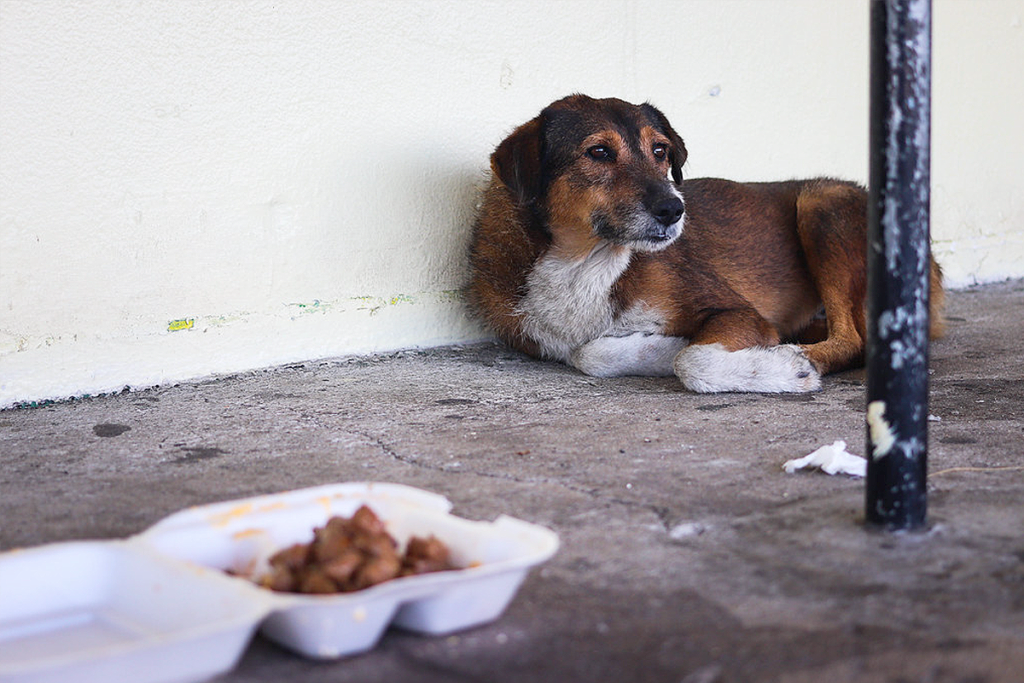
In October 2009, 14-year-old Kirsh Duncombe wrote a letter to the Bahamas Tribune Editor. In his message, he revealed that every Friday morning, at least 50 animals were euthanized at the Canine Control Unit, otherwise known as ‘the pound’. When he visited the site, he saw a dog living in a cage with one who had passed away, and animals were starving, without water, and living in horribly unsanitary conditions. His words sparked outrage in the community and among animal welfare groups alike. As a result, the Bahamas Alliance for Animal Rights and Kindness (BAARK!) was established and their small, but passionate, group set out to reduce homelessness and suffering among the animals of the Bahamas. BAARK! operates on the core values of Learning, Ownership, Vigor, and Esprit de corps, collectively forming the acronym LOVE. They emphasize continuous learning, encouraging personal responsibility for pet ownership, maintaining unwavering determination in their endeavors, and fostering a sense of pride and collaboration among team members.
With 14 years of tireless dedication, BAARK! has accomplished remarkable feats:
+ Over 31,918 free spay/neuter procedures performed since 2009, offered 7 days a week.
+ Interactive education provided to over 3,200 children, teaching compassionate attitudes towards animals.
+ Assistance extended to 11 different family islands in The Bahamas, spreading their impact far and wide.
+ Prevented over 1.5 MILLION unwanted puppies and kittens from being born into a life of suffering.
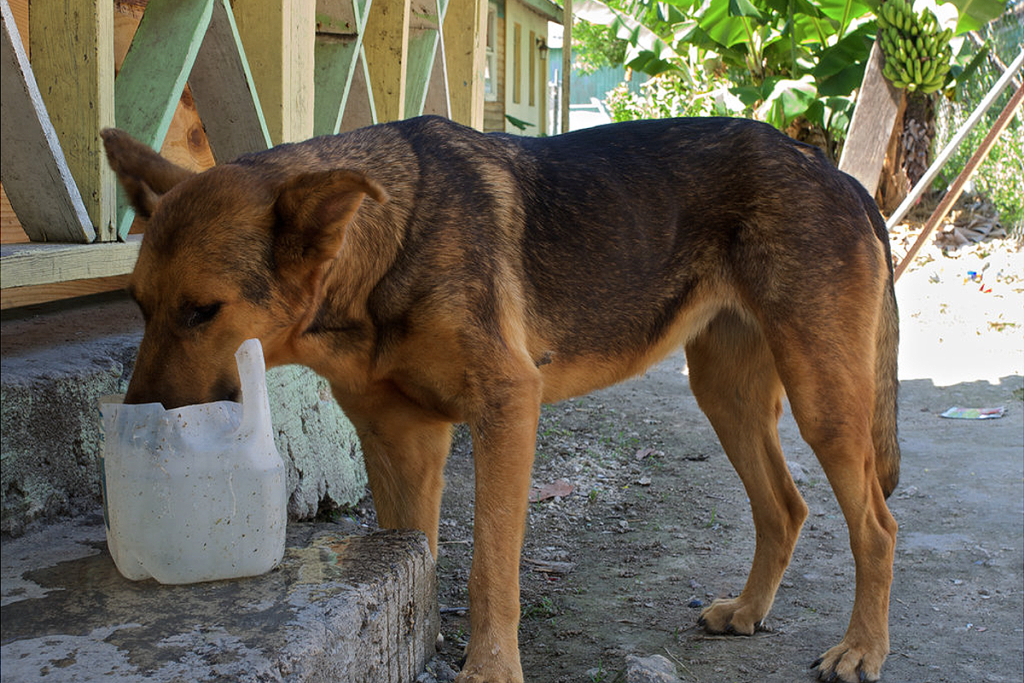
While we’ve talked about the everyday life of these animals and the struggles they face, I’ve yet to describe what the effects of a hurricane have on these dogs when they have nowhere to go. When Dorian came through the Bahamas in 2019, the magnitude of loss and devastation was like nothing they had ever experienced. Only one of four Category 5 hurricanes to strike the Bahamas, Dorian left a wide wake. To date, the official overall death toll is 74 with 282 people still unaccounted for.
The Humane Society of Grand Bahama was boarded up in preparation for the storm and six staffers were tasked with taking care of the animals for the duration of the hurricane. The flooding started slowly on September 2nd, but quickly rose to five feet. As the waters rose to chest height, the shelter team, including supervisor Felicia Telfort, tried to elevate the animals’ cages to protect them from the overwhelming flooding. The next day, they had no choice but to swim out of the shelter, and they were unable to reach the animals to check on their conditions.
When shelter director, Tip Burrows, was finally able to get to the shelter, she discovered the carnage. More than 200 dogs and 50 cats had perished. But she also found many cats had been able to climb to higher points to survive. And she later found 74 dogs alive, and then another 15 in the back of the shelter. Another dog was found in an upstairs bathroom where it was perched on a door and various bits of debris for two days. Given the number of stray dogs that roam the islands, who would have been completely defenseless against the fiercely violent nature a Category 5 storm brings, the number of deaths is unknown, and heartbreaking to imagine. For those that did survive, life among the wreckage became even harder.
Countless animal rescue organizations, like IFAW, ASPCA, and Best Friends Animal Society, responded quickly with lifesaving efforts focused on evacuation – bringing hundreds of animals to the safe shelters in the states, transporting food, clean water, medical supplies, and pet crates. But six years later, the islands are still recovering. And each year, storm season looms ahead of them, a reminder that everything they’ve worked for can be undone in a matter of hours. Thus, preparation has become paramount, especially with storm predictions becoming more numerous and seasons lasting longer and longer.
Recently BAARK and BHS have been working with shelters in the U.S. and Canada to relocate healthy, adoptable animals of the Bahamas and create space in their shelters for homeless animals and pets displaced by hurricanes and tropical storms. This week, 50 dogs and cats will make their way from Nassau to Darbster Rescue in Chichester, New Hampshire and South Paw Conservation in Halifax, Nova Scotia. It’s a long journey, but if it means a long life for these animals, then it’s worth every mile.
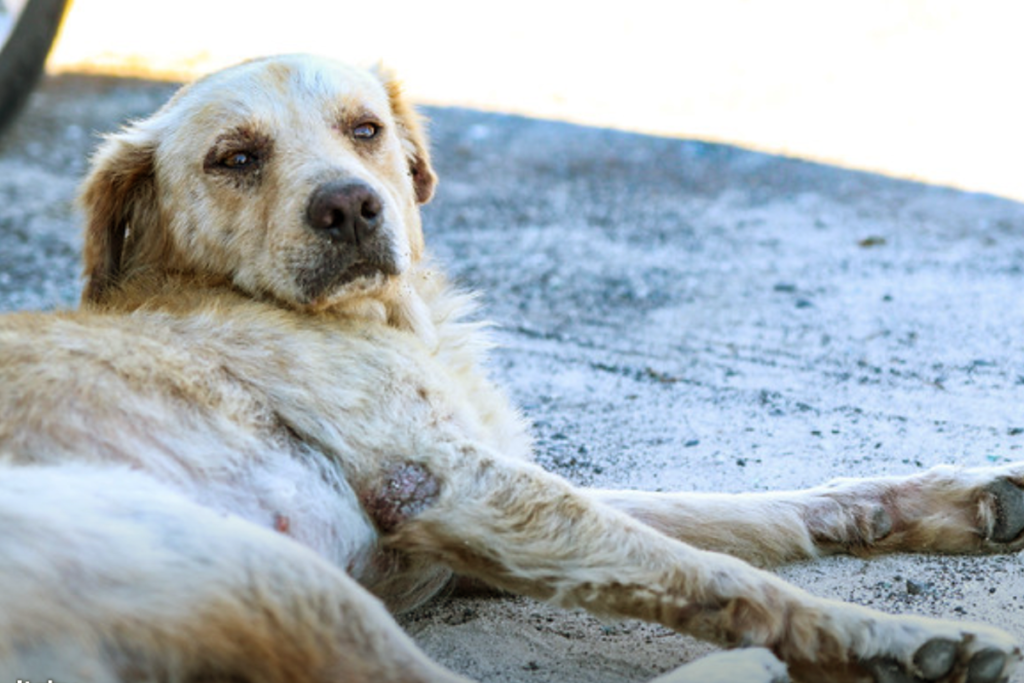
We’ve created an amazing friendship with the shelter team in the Bahamas and learned so much about their way of life, the challenges they meet with incredible tenacity, and the great strides they’re making for the island animals. We look forward to being a part of their future endeavors and hope you’ll consider joining us. If you’re interested in opening your home to a Potcake, please reach out to them. Or if you’re able to help support a flight, spay/neuter clinic, or even just share their story, it would mean so much.
The national motto of the Bahamas is “Forward Upward Onward Together”…living by these words is the definition of paradise no matter where you are, but the perseverance of this place, the people, and its Potcakes, makes it even more special.
